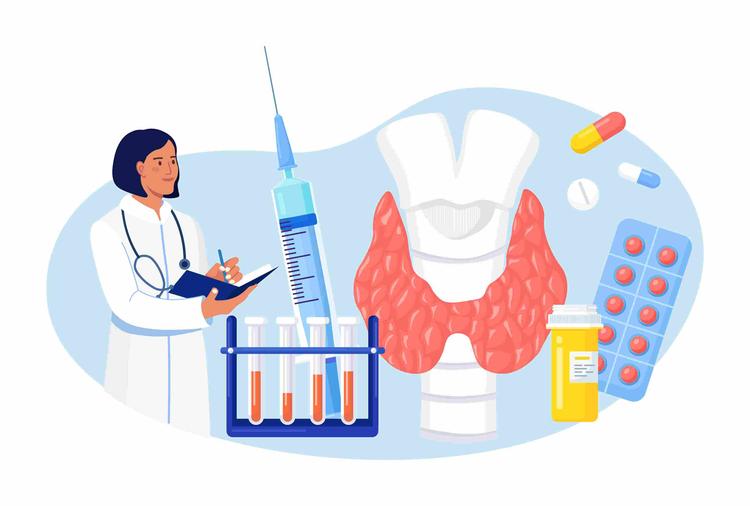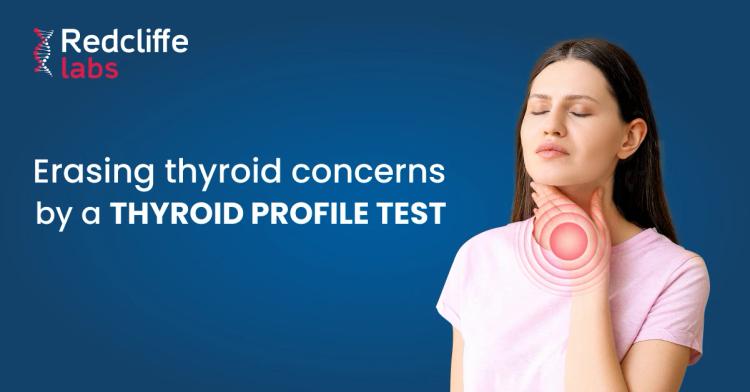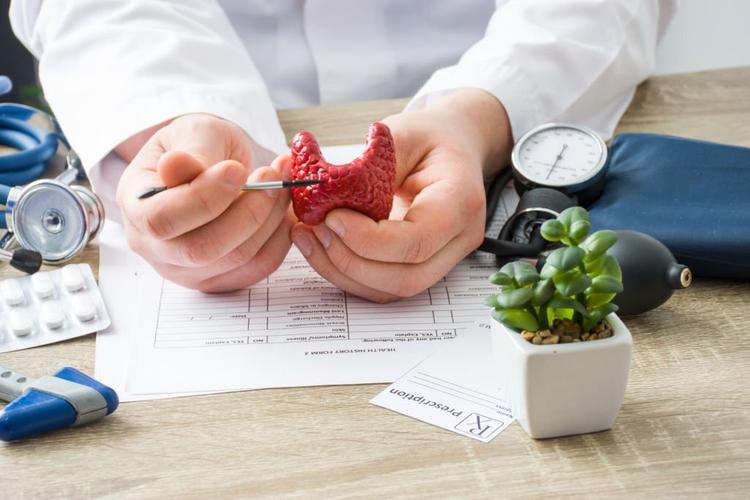Thyroid Blood Tests - Explained A to Z

Medically Reviewed By
Dr Divya Rohra
Written By Srujana Mohanty
on Jul 28, 2022
Last Edit Made By Srujana Mohanty
on Jan 9, 2025

Thyroid blood tests are a group of diagnostic tests that evaluate the level of thyroid hormones in your blood. According to studies, around 42 million people in India are diagnosed with thyroid disorders. Out of 1 in 2640 neonates in India are diagnosed with hypothyroidism. Other thyroid disorders prevalent in India include hyperthyroidism, goitre, Grave’s disease, Hashimoto’s disease, thyroid nodules, and cancer. With such an increasing rate of thyroid disorders, it is essential to know about the blood tests that can help diagnose thyroid disorders. In this article, let us study the blood tests like the thyroid-stimulating hormone (TSH) test, thyroxine (T4) test, free T4 test, triiodothyronine (T3) test, free T3 test, thyroid antibody test, calcitonin test, and thyroglobulin test that are used for the diagnosis of thyroid disorders.

What are thyroid blood tests?
Thyroid function blood tests are diagnostic tests conducted to check whether or not your thyroid gland is functioning properly. These blood tests evaluate the level of triiodothyronine (T3) and thyroxine (T4) hormones secreted from the thyroid gland. These hormones play important functions in your body, and thus their regulation and monitoring are essential. The major functions of T3 and T4 hormones include
- These hormones regulate the rate at which calories are used in your body
- These hormones can cause fluctuations in heart rate by either slowing down or speeding up the heart rate
- Thyroid hormones also make changes in your body temperature
- Thyroid hormones influence the movement of food in your digestive tract
- They may also affect the development of the brain
- These hormones control muscle contraction
- These hormones maintain skin and bone health
What is the need for thyroid blood tests?
According to the National Institute of Diabetes and Digestive and Kidney Diseases (NIDDK), thyroid blood tests may be recommended by your doctor if they suspect the prevalence of any thyroid diseases. Various signs and symptoms can suspect thyroid disease. The thyroid diseases that can be diagnosed through thyroid tests include:
- Hypothyroidism: Condition wherein the levels of thyroid hormone is too low
- Hyperthyroidism: Condition wherein the levels of thyroid hormone are too high
- Graves’ disease: It is one of the most common causes of hyperthyroidism
- Hashimoto’s disease: It is one of the most common causes of hypothyroidism
- Thyroid nodules and thyroid cancer
- Goitre
What blood tests are used to check thyroid function?
The doctor can recommend various blood tests to determine the function of your thyroid gland. These thyroid blood tests measure the levels of the T3 and T4 thyroid hormones secreted from the thyroid gland. The levels of thyroid hormone in the blood help analyse the functioning of the thyroid gland. Too low or too high levels of different thyroid hormones depicted in the thyroid blood tests indicate the possibility of thyroid disorders. Some doctors may recommend you get a fasting thyroid blood test, that is, giving your blood sample for the test when you have not eaten for at least 8-12 hours.
Thyroid-stimulating hormone (TSH) test
- This is usually the first test done to measure thyroid hormone imbalance.
- The pituitary gland produces TSH hormone, and it monitors the levels of T3 and T4 hormones in your blood.
- If the levels of TSH hormone are greater than normal, it indicates a deficiency of thyroid hormone, that is, hypothyroidism.
- If the levels of TSH hormone are less than normal, it indicates excess levels of thyroid hormone in the bloodstream, that is, hyperthyroidism.
- If the levels of TSH in the test are abnormal, then further tests are done to check the T3 (triiodothyronine) and T4 (thyroxine) hormone levels directly.
- The normal levels of TSH range between 0.40 - 4.50 mIU/mL.
Thyroxine (T4) test
- The T4 test is done to diagnose whether you have hyperthyroidism or hypothyroidism. The test is also done to monitor the effectiveness of your current treatment.
- Low T4 levels indicate hypothyroidism, whereas high T4 levels indicate hyperthyroidism.
- The normal levels of T4 in an adult range between 5.0 - 11.0 µg/dL.
Free thyroxine (T4) test
- This test detects the levels of free T4 in the bloodstream, that is, T4, which is not bound to any proteins in your body.
- The normal levels of T4 in an adult range from 0.9 - 1.7 ng/dL.
Triiodothyronine (T3) test
- This test is exclusively done to diagnose hyperthyroidism and to analyse the severity of hyperthyroidism.
- The elevated levels of T3 indicate hyperthyroidism. However, if you have decreased levels of T3, you can further take tests for the diagnosis of hypothyroidism.
- The normal range of T3 hormone in adults varies from 100 ng/dL to 200 ng/dL.
Free triiodothyronine (T3) test
- This test detects the levels of free T3 in the bloodstream, that is, T3, which is not bound to any proteins in your body.
- The normal levels of T4 in an adult range from 2.3 - 4.1 pg/mL.
Thyroid antibody test
- The thyroid antibody test is done to diagnose different autoimmune thyroid conditions.
- The thyroid antibodies test includes
- Microsomal antibodies or thyroid peroxidase antibodies (TPO)
- Thyroglobulin antibodies (TG antibodies)
- Thyroid receptor antibodies like thyroid-stimulating immunoglobulins (TSI) and thyroid blocking immunoglobulins (TBI).
Calcitonin test
- The calcitonin test is conducted to diagnose rare thyroid disorders like C-cell hyperplasia and medullary thyroid cancer.
Thyroglobulin test
- A thyroglobulin test is done to diagnose thyroid inflammation, that is, thyroiditis, and to monitor the treatment of thyroid cancer.
- Therefore, this test is also known as the thyroid cancer marker blood test.
Takeaway
The thyroid disorder is a very common metabolic disorder among the Indian population. The timely diagnosis and regular monitoring of thyroid disorders are very important to prevent future complications. Blood tests are the best possible diagnostic tool for determining and monitoring thyroid disorders. Now that you know the various blood tests available for the diagnosis of thyroid disorders, you must get these tests done if your doctor recommends them to you and will also be able to analyse your reports.
Frequently Asked Questions (FAQs)
1. What is the average TSH level according to age?
The normal TSH levels according to age are as follows:
- 18 - 30 years: 0.5 - 4.1 mU/L
- 31 - 50 years: 0.5 - 4.1 mU/L
- 51 - 70 years: 0.5 - 4.5 mU/L
- 71 - 90 years: 0.4 - 5.2 mU/L
2. What does a thyroid blood test show?
The thyroid blood test shows the level of different thyroid hormones in your blood.
3. What are normal thyroid blood test results?
The normal levels of T4 hormone in a thyroid blood test are approximately 0.40 - 4.50 mIU/mL.


